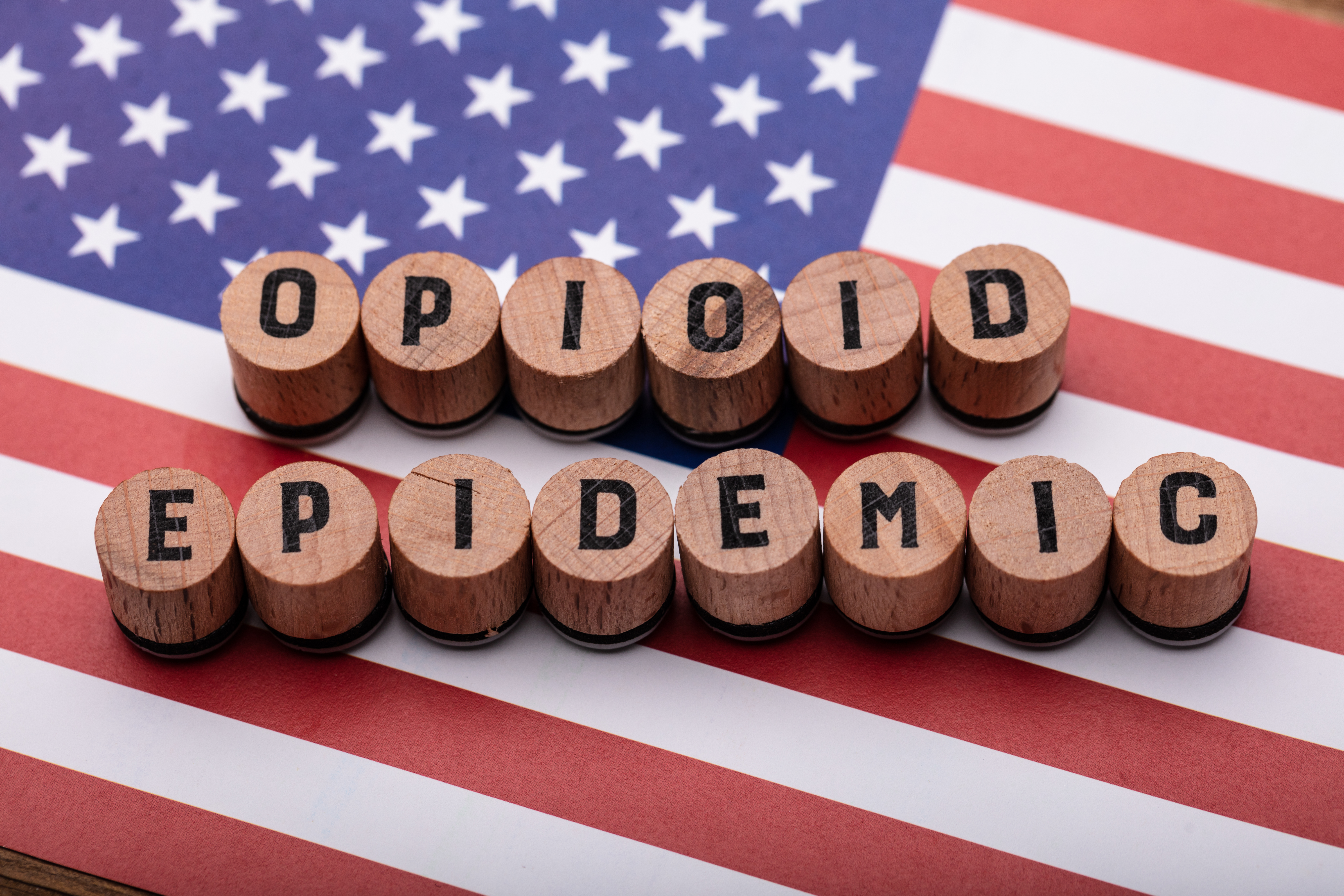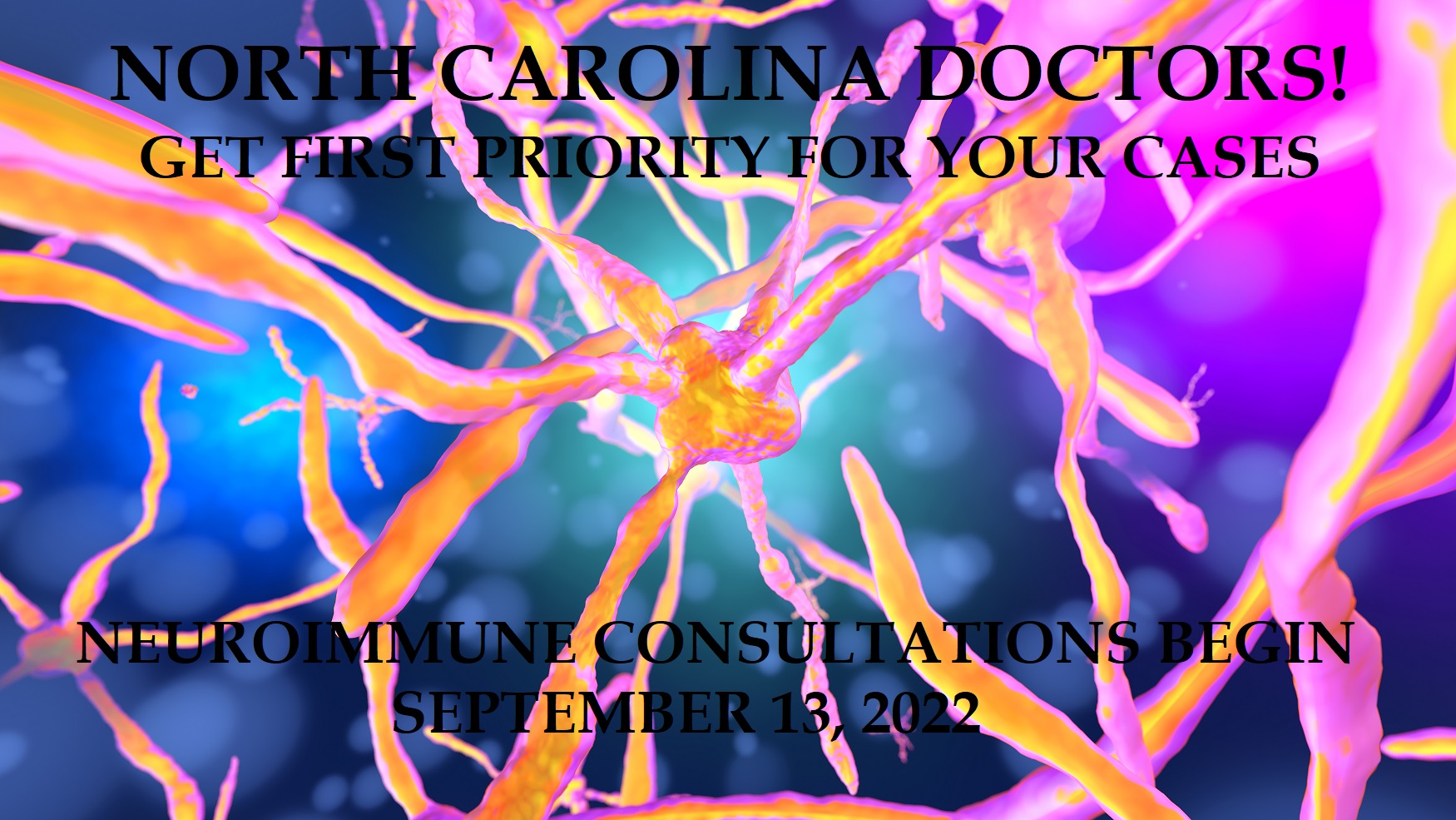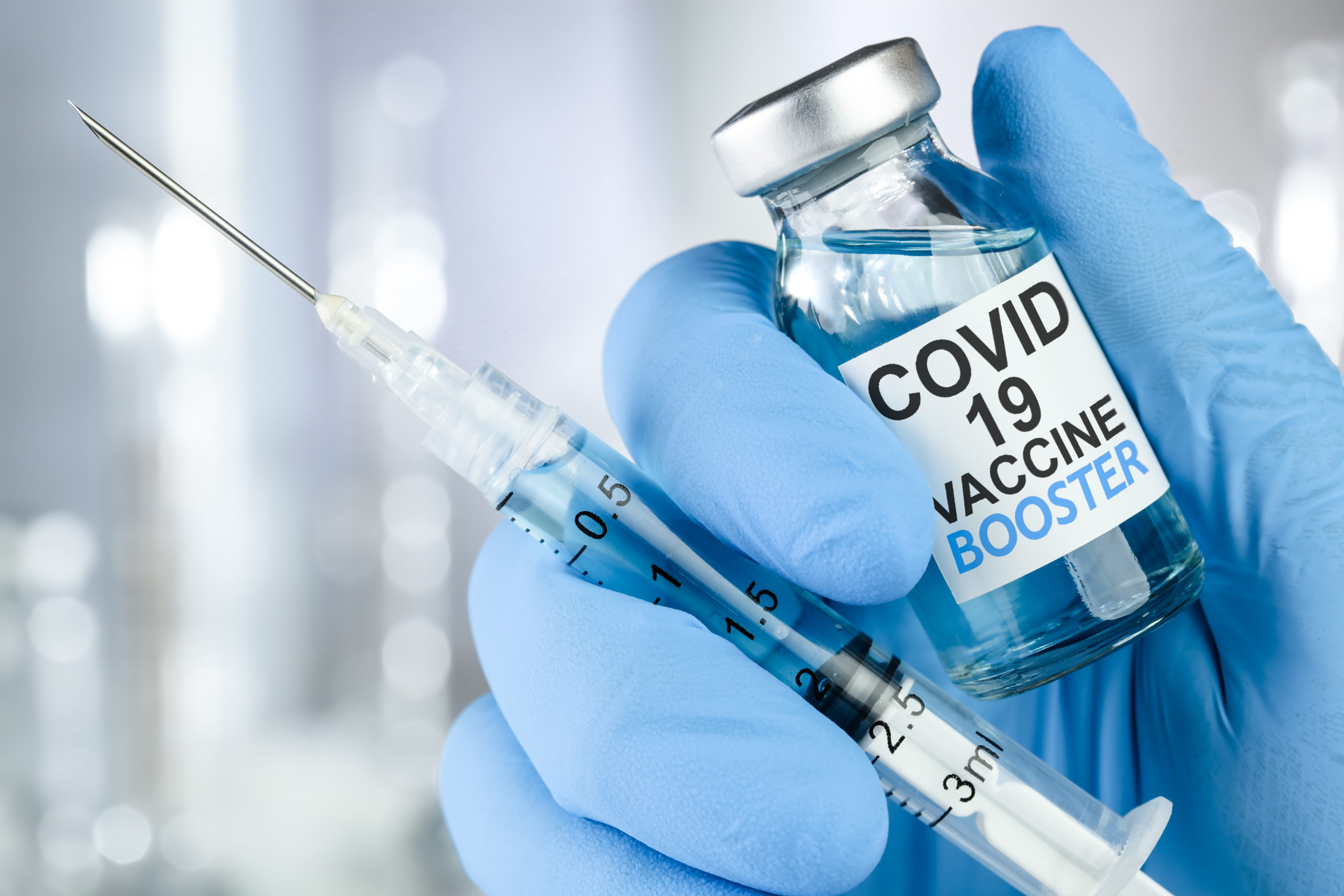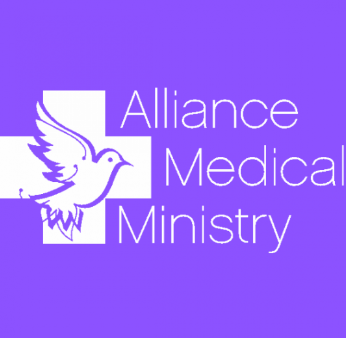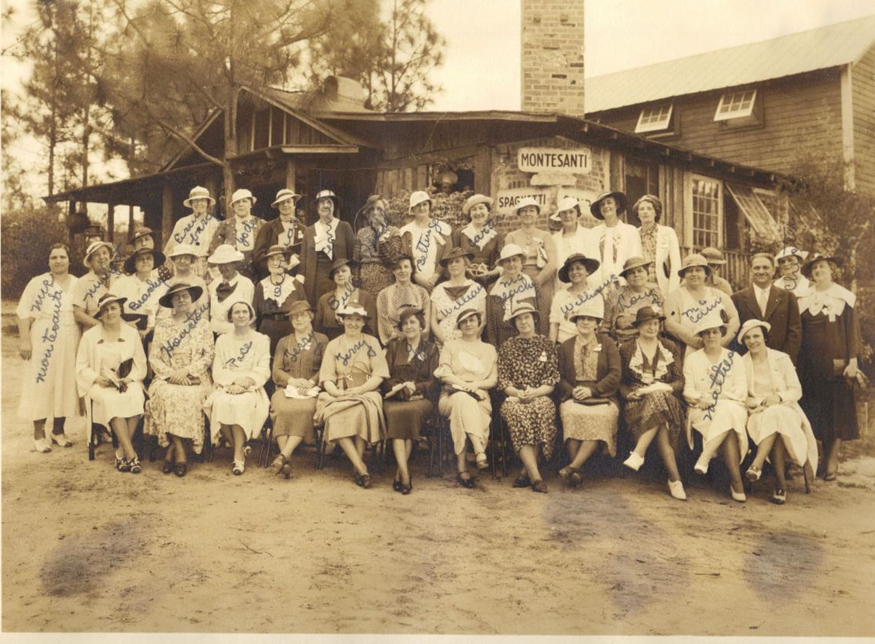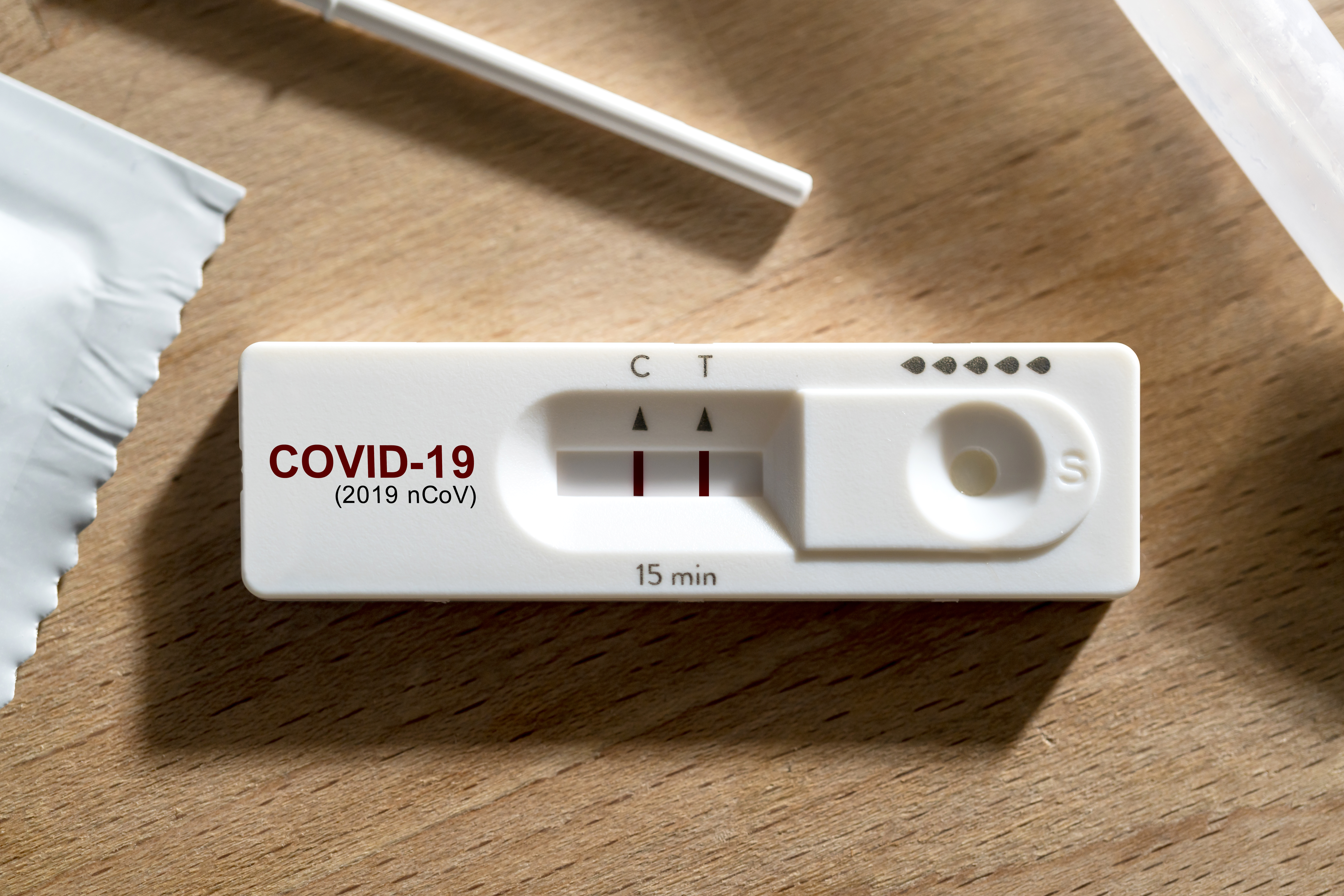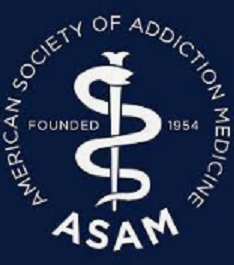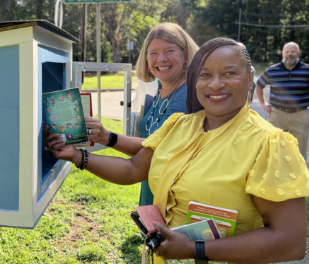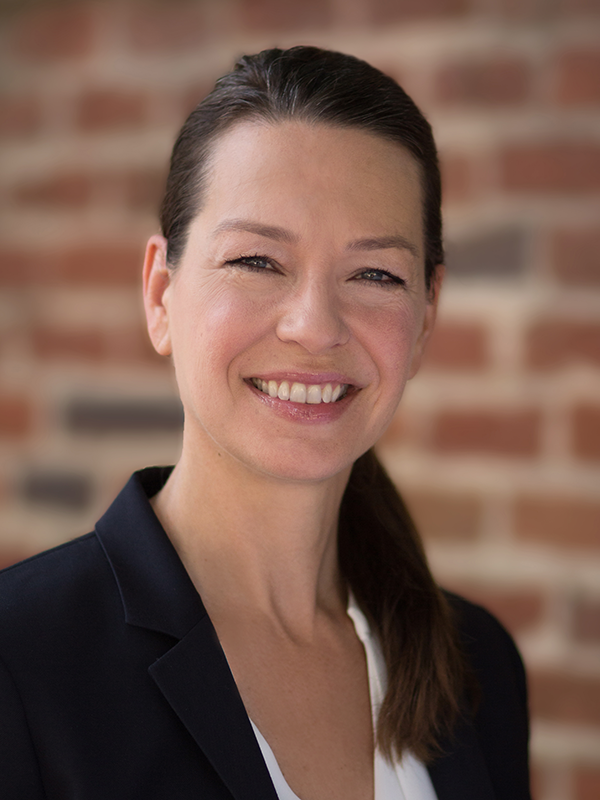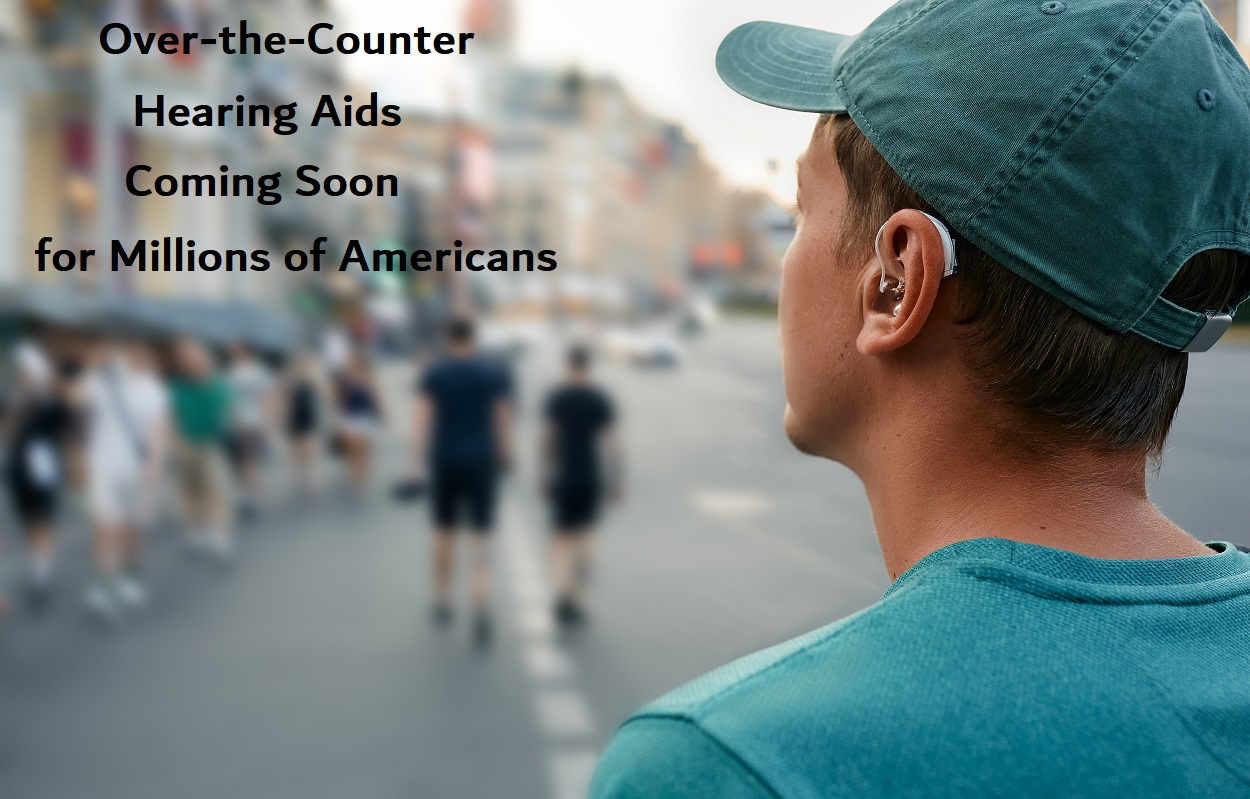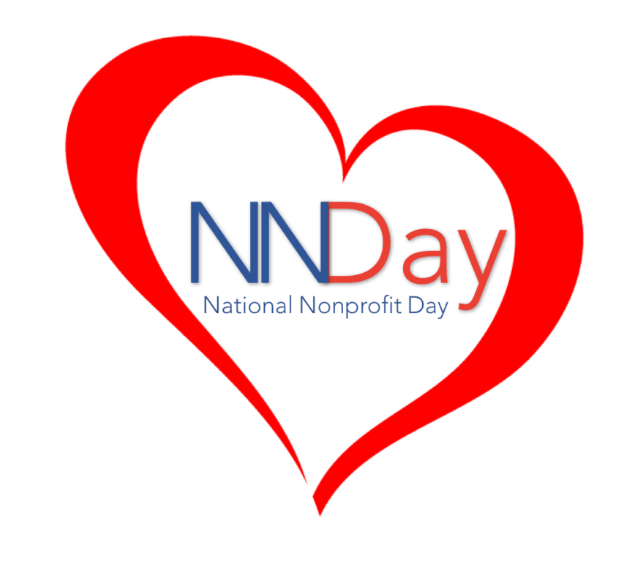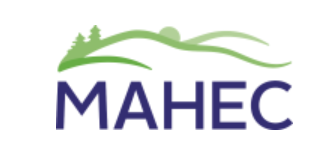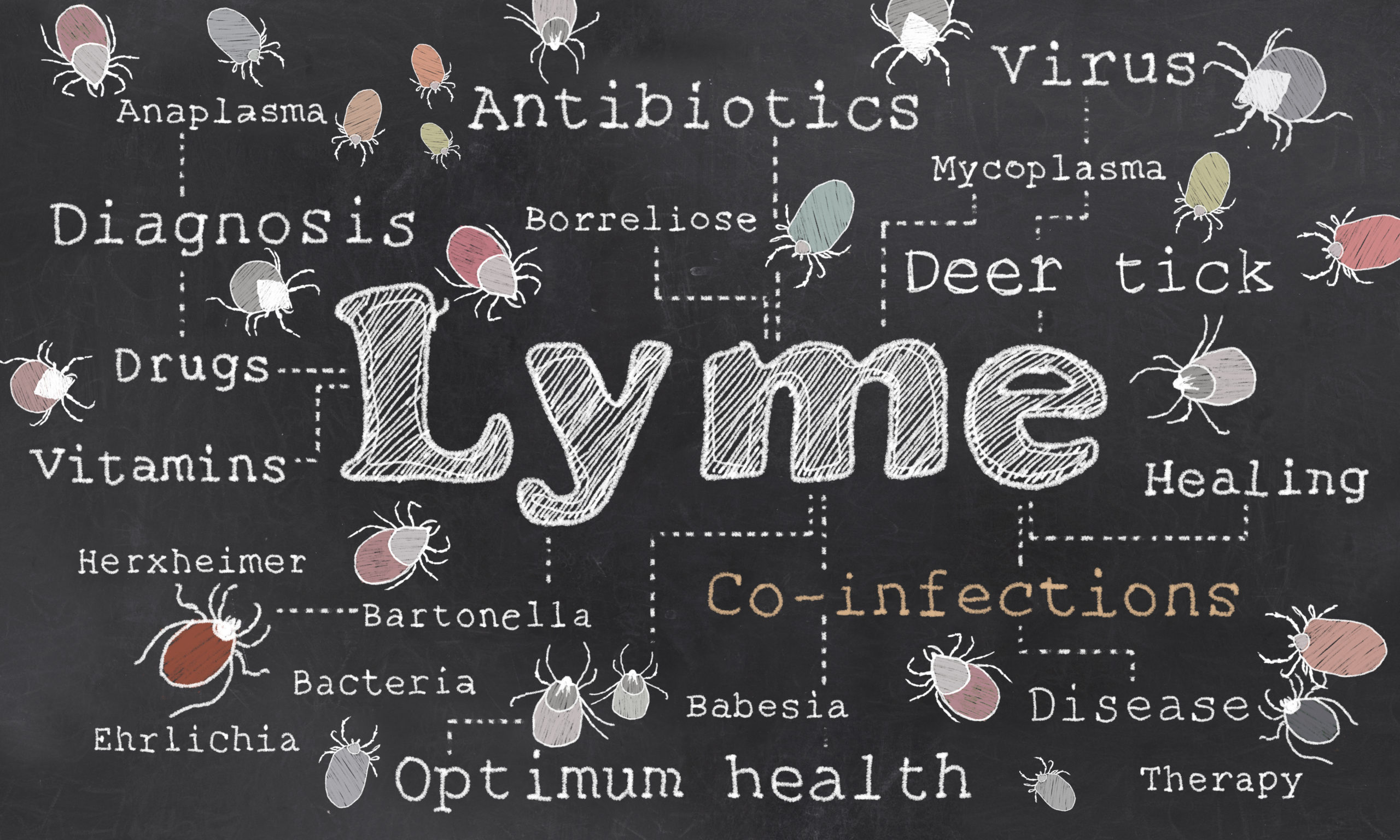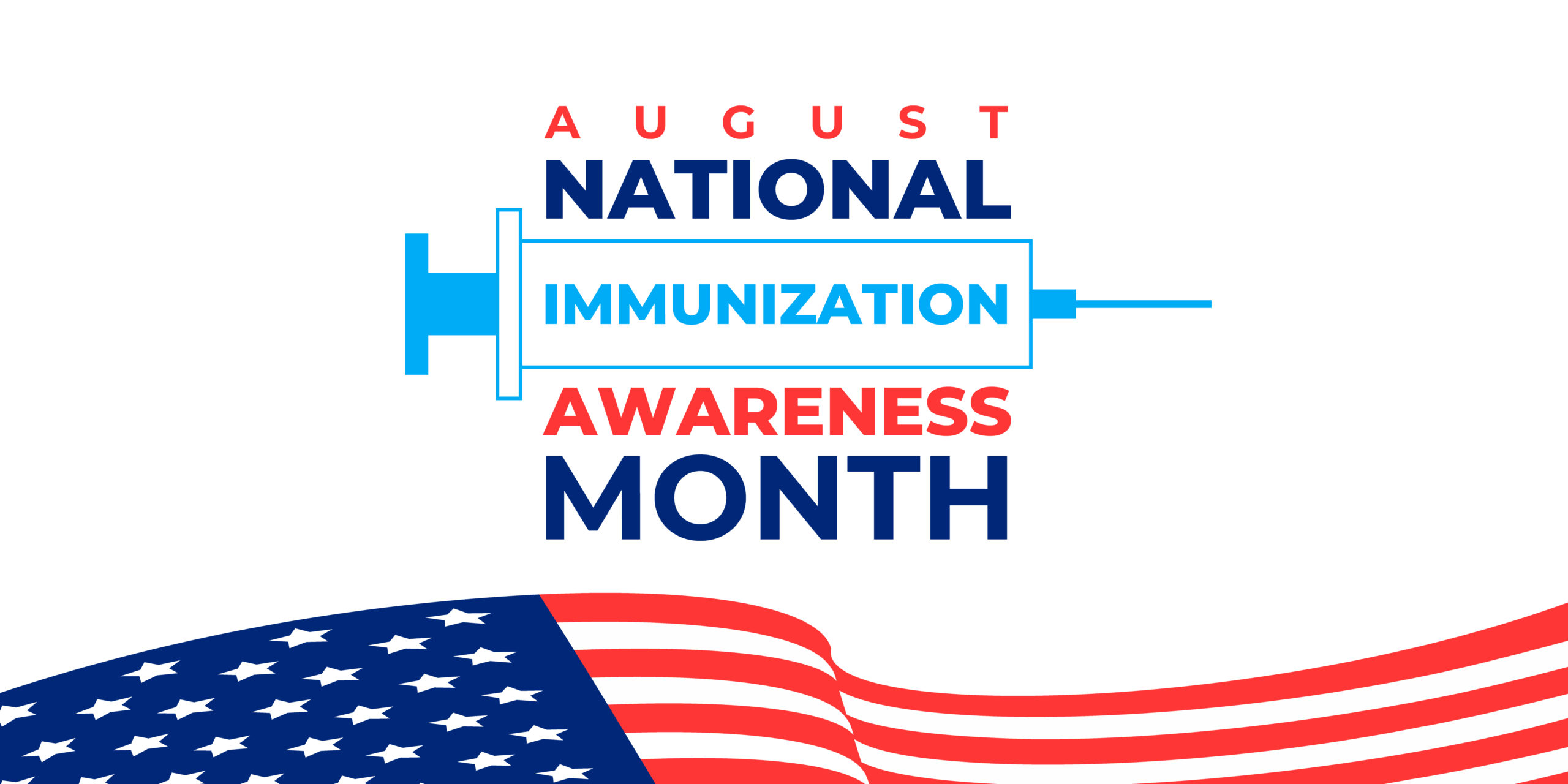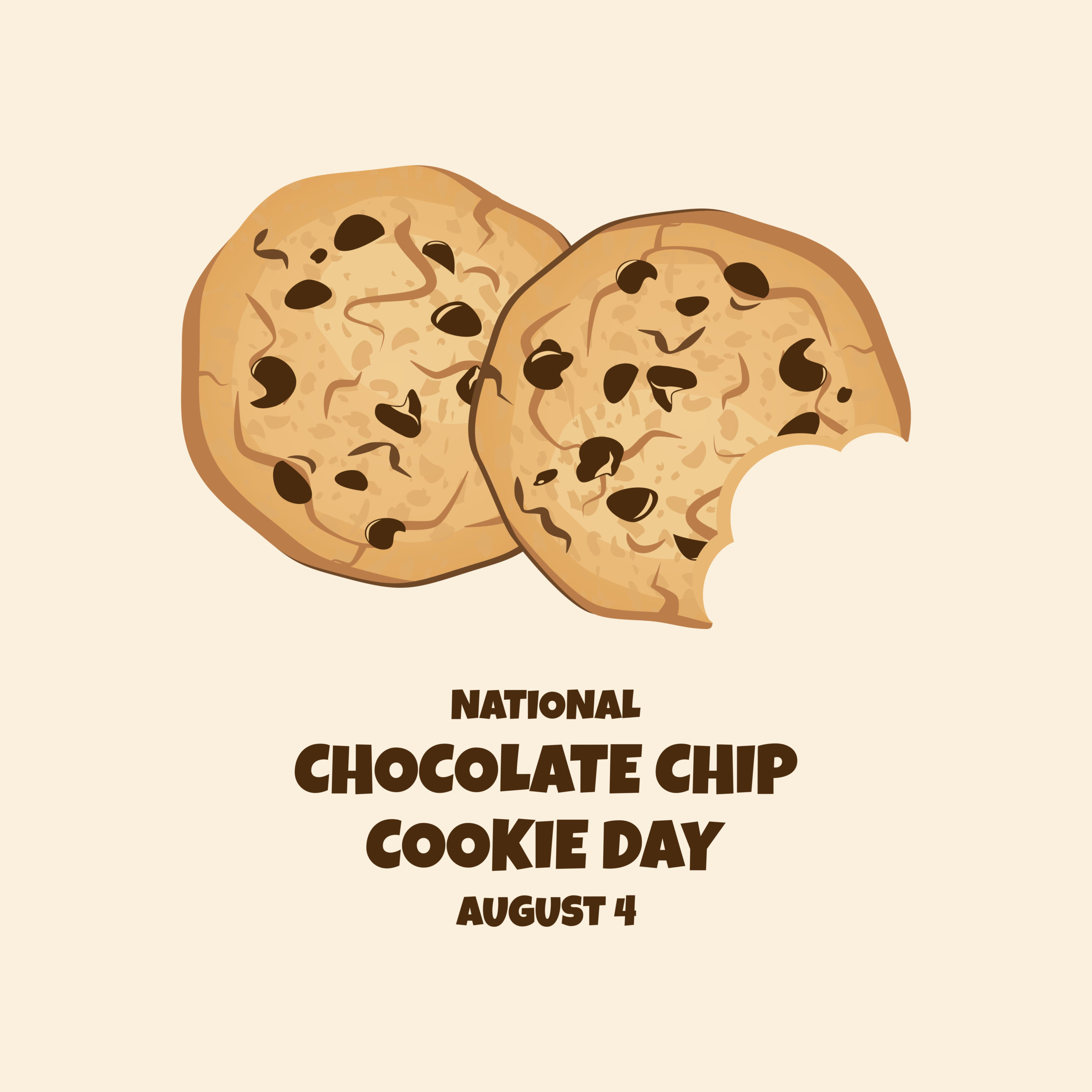AMA: All-hands-on-deck needed to end disturbing trends on overdose deaths
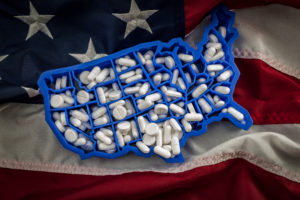
CHICAGO—With a report issued Thursday detailing the horrific toll of the nation’s overdose and death epidemic, the American Medical Association (AMA) calls for an all-hands approach -- policymakers, public health experts, educators, faith leaders, and employers – to help save lives.
While physicians and other health care professionals have reduced opioid prescribing in every state—by nearly 50% nationally – that by itself cannot reverse the trend of drug-related overdose deaths. In fact, for the first time, in 2021 drug-related overdose deaths exceeded 100,000—primarily due to illicitly manufactured fentanyl, methamphetamine and cocaine. Overdose deaths are amplified by underlying social needs including housing and transportation.
“No community has been – or will be – spared the pain of this epidemic. The spiking mortality numbers – with young people and Black and Brown Americans dying at the fastest growing rates - add yet another urgent call to remove health inequities from the nation’s health care system. We know policymakers have not exhausted all remedies. Until we have, we must keep advocating for humane, evidence-based responses,” said Bobby Mukkamala, M.D., chair of the AMA Substance Use and Pain Care Task Force [LINK].
The report calls for a campaign to include:
- Policymakers, health insurance plans, national pharmacy chains and other stakeholders to change their focus and remove barriers – such as prior authorization -- to evidence-based care. States should require health insurance companies and other payers to make non-opioid pain care alternatives more accessible and affordable.
- Medical and other health care professional licensing boards to help patients with pain by reviewing and rescinding arbitrary restrictions on opioid therapy—as now recommended by the Centers for Disease Control and Prevention.
- State officials to remove punitive policies against pregnant individuals and parents who have a substance use disorder. State departments of corrections and private jails and prisons need to ensure that all individuals with an opioid use disorder or mental illness receive evidence-based care while incarcerated -- and are linked to care upon release. This includes ensuring access to medications for opioid use disorder (MOUD).
- Employers to review their health insurance and benefits plans to ensure employees and their families have access to pain specialists and affordable access to comprehensive pain care, physicians who provide MOUD, and psychiatrists who are in the employer’s network.
- Public health officials to help control infectious disease spread through supporting comprehensive syringe services programs, reduce overdose through widespread, community-level distribution of naloxone and fentanyl test strips and pilot projects in support of overdose prevention centers.
- Faith leaders to help destigmatize substance used disorders and harm reduction by educating their members and holding overdose awareness events.
“What is becoming painfully evident is that there are limits to what physicians can do. We have dramatically increased training and changed our prescribing habits, reducing the number of opioids prescribed while increasing access to naloxone, buprenorphine and methadone. But illicitly manufactured fentanyl is supercharging this epidemic. We need help from leaders across sectors to combat this public health crisis,” said Dr. Mukkamala.
The use of prescription drug monitoring programs (PDMPs) also continued its upward trajectory with physicians and other health care professions surpassing the 1 billion mark for the first time. PDMPs are electronic databases that track controlled substance prescriptions and help identify patients with uncoordinated care who might be receiving multiple prescriptions from multiple prescribers.
State-by-state data for opioid prescriptions, MOUD, naloxone and PDMP use can be found here: [LINK]
Read the report by clicking here.
HIGHLIGHTS FROM THE REPORT:
- Physicians have taken action to reduce opioid prescribing, increase use of PDMPs, increase provision of MOUD, increase naloxone prescribing
-
- 46.4 percent decrease in opioid prescribing between 2012-2021—every state in the nation has seen a significant decrease
- More than 1.1 Billion queries of state PDMPs in 2021—a 23 percent increase from 2020
- From 2012 to 2021, prescriptions for buprenorphine to treat OUD increased 104 percent; from 2020-2021, however, it only increased 1.6 percent
- From 2016 to 2021, naloxone prescriptions dispensed from pharmacies increased from almost 134,000 to nearly 1.2 million prescriptions. Naloxone dispensed from pharmacies increased 31 percent from 2019-2021. But—naloxone access remains greatly limited by prescription status, and community-based distribution hampered by Rx status
- Epidemic is worsening—racial, ethnic inequities underscore increased mortality for Black and Brown Americans; Policymakers continue lack of meaningful policy enforcement against health insurance companies
-
- 107,000+ Americans died of a drug-related overdose in 2021—mainly due to illicitly manufactured fentanyl, which is being found in 75+ percent of counterfeit pills and other substances
- Young people, Black and Brown Americans dying at increasing rates; inequities in treatment becoming worse
- Health insurance companies found to repeatedly violate state and federal mental health and substance use disorder parity laws
- Of the 40.3 million people aged 12 or older with a substance use disorder, 93.5 percent received no treatment; more than 27 million people aged 18 or older with a mental illness received no treatment.
The report calls for key policy actions to focus on increasing access to evidence-based care for patients with a mental illness, substance use disorder, pain and those who need harm reduction services to improve outcomes and reduce mortality and other harms, including:
Implement policies to remove all barriers to evidence-based care for mental illness and substance use disorders, including parity enforcement, network adequacy
Remove arbitrary restrictions on pain care, including all policies based on misguided 2016 CDC opioid prescribing guideline
Increase access to a broad array of evidence-based harm reduction services, including naloxone, fentanyl test strips, syringe services programs.
| Year | Drug-related overdose deaths | Opioid prescriptions dispensed from retail pharmacies | Prescription drug monitoring program queries |
| 2012 | 41,502 | 260,464,735 | |
| 2013 | 43,982 | 251,770,763 | |
| 2014 | 47,055 | 244,484,091 | 61,462,376 |
| 2015 | 52,404 | 227,807,356 | 86,096,259 |
| 2016 | 63,632 | 215,998,653 | 136,643,036 |
| 2017 | 70,237 | 192,696,190 | 295,347,288 |
| 2018 | 67,367 | 168,858,135 | 449,497,610 |
| 2019 | 70,630 | 153,966,961 | 744,943,531 |
| 2020 | 91,799 | 143,389,354 | 908,269,727 |
| 2021 | 107,270 | 139,617,469 | 1,122,128,487 |
More information from the AMA is available here.
NCMS here to help. Our new Wellness & Resilience page is LIVE!

RALEIGH -- The North Carolina Medical Society is excited to announce that our new Wellness & Resilience page is LIVE and ready to help clinicians and organizations across the state!
NCMS has been actively addressing this topic since 2018 in response to the late Mitchell D. Hardison, MD who struggled privately with stress and depression, leading to Dr. Hardison taking his own life. Through the vision of NCMS to provide leadership in medicine by uniting, serving, and representing physicians and their health care teams, this is a big step in creating the best state to practice medicine in the United States in in terms of work-life balance and sense of fulfillment as a clinician.
The North Carolina Consortium Stress & Resilience (NCCSR) is an important part of the work we do to address this burning issue in healthcare. Together with stakeholders, such as NCMB, PHP, Curi and others, we are determined to move the needle on the endemic when it comes to North Carolina. This page has been carefully curated with the aid of a committee of experts in the field of stress, burnout and resilience among clinicians and organizations specifically and is full of tools and resources for the individual and organization.
On our new Wellness & Resilience page, you will find tools and resources to support clinicians and organizations organized into different dimensions for easier navigation. These tools and resources are readily available to non-members, with added tools and resources being developed for active NCMS members.
It is found on our main page under HealthyNC.
Click here to access now.
NC Physicians given priority for Neuroimmune Consultation Panel
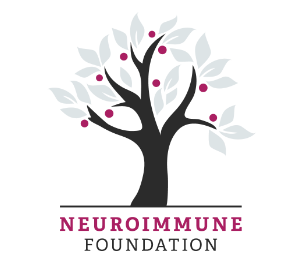
Thanks to a grant from the state, NC doctors are getting first priority to submit cases of children who have/appear to have a PANS/PANDAS-like presentation.
The Neuroimmune Foundation is launching virtual face-to-face consultations with experts in the field of neuroimmunology starting September 13th!
Many clinicians struggle with challenging cases of presumed inflammation-mediated neuropsychiatric deteriorations (+/– post-infectious) that do not fit a defined diagnosis. Without clear biomarkers and clinical treatment pathways, many clinicians are unsure how to proceed. Even in quaternary care centers with multiple physicians working together on these cases, these highly specialized teams struggle with next steps.
The Neuroimmune Foundation has put together a panel with expertise in autoimmune encephalitis, multiple sclerosis, CNS vasculitis, neuropsychiatric lupus, Behcet’s disease, Sydenham chorea, PANS/PANDAS, autism deteriorations, and other post-infectious, inflammatory, and autoimmune brain disorders They are eager to share what they’ve learned from their experiences treating complex patients.
The Neuroimmune Consultation Panel is to help clinicians think through cases in a multi-disciplinary team setting. Some cases may be written up for publication in order to disseminate knowledge with consent from the family/patient.
This panel is being offered thanks to a grant from the state of North Carolina to help children with PANS/PANDAS. Therefore, through June 2023, priority will be granted to North Carolina physicians submitting cases of children who have/appear to have a PANS/PANDAS-like presentation.
The panel will meet the second Tuesday of every month at 4:00 – 5:00 pm Pacific Time.
Next meetings: September 13, October 11, November 8, December 13, 2022.
Each session will focus on one patient. Physicians wishing to submit a case for consideration may do so
at www.neuroimmune.org/panel-consultation (at least four weeks prior to the scheduled meeting).

Sam Pleasure, MD, PhD
Glenn W. Johnson, Jr. Memorial Endowed Chair in Neurology — University of California, San Francisco

David B. Lewis, MD
Chief, Division of Allergy, Immunology, and Rheumatology — Stanford University School of Medicine

Mark Pasternack, MD
Chief of Pediatric Infectious Disease, Associate Professor of Pediatrics — Massachusetts General Hospital, Harvard

Kiki Chang, MD
Co-Founder, Stanford PANS Clinic and Research Program; Adjunct Professor of Psychiatry, McGovern Medical School

Jennifer Frankovich, MD
Clinical Professor in the Department of Pediatrics, Division of Immunology & Rheumatology — Stanford University School of Medicine

Elizabeth Tong, MD
Assistant Professor of Radiology — Stanford University School of Medicine

Herbert M. Lachman, MD
Professor, Department of Psychiatry and Behavioral Sciences, Medicine, Genetics, and Neuroscience, Albert Einstein College of Medicine
For more detailed information please go to www.neuroimmune.org.
FDA Approves New Round of Covid Booster Shots Targeting Omicron Variant

Over the next several days, pharmacies and doctors’ offices are going to start receiving Covid-19 boosters that are reformulated to include protection against one of the sub-variants of Omicron.
These boosters, from Pfizer and its partner BioNTech as well as from Moderna, are bivalent shots. They target two strains of the SARS-CoV-2 virus, both the original strain that all previous vaccines have protected against, and the Omicron sub-variants BA.4/BA.5.
These products received emergency authorizations from the Food and Drug Administration on Wednesday. On Thursday evening, Centers for Disease Control and Prevention Director Rochelle Walensky signed off on the recommendation made earlier in the day by the Advisory Committee on Immunization Practices.
The American Hospital Association has more detailed information on the newly approved shots. Read more by clicking here.
Ready to leave your scrubs at home? These Diamond sponsors of the NCMS 2022 Gala have a message for you!

RALEIGH -- The 2022 Golden Stethoscope Awards Gala is almost here! Diamond sponsors Sentinel and Curi are excited to help bring you a night of dinner, dancing, and fun!
James Holmes, Sentinel Managing Partner, and Jason Sandner, Curi CEO, have joined up to talk about their partnership with the North Carolina Medical Society and why they are excited about the 2022 Golden Stethoscope Awards Gala.
The event is Saturday, October 15, at 7pm at the Raleigh Marriott Crabtree Valley. Leave your scrubs at home and put on your black tie best! Space is limited so get your tickets now by clicking here.
Hear from Holmes and Sandner here!
NCMS Foundation partner Alliance Medical Ministry celebrates exciting fiscal year end results
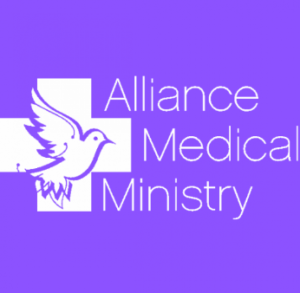
RALEIGH -- The Alliance Medical Ministry is a long-time partner of the North Carolina Medical Society Foundation. It is celebrating some highlights of the 2021-2022 fiscal year.
Take a look:
- 2,149 unique patients served with 10,818 total patient encounters
- 5,850 visits with AMM primary care providers
- 1,749 mental/spiritual health and social work sessions with AMM staff
- 335 new patients served
- 107 on-site mammograms through UNC-REX Mobile Mammography Bus
- 492 specialty care visits on-site with volunteer providers —cardiology, women's care, endocrinology, psychiatry, physical therapy, orthopedics, and wound care
- 402 COVID-19 vaccine doses distributed
- $5.35 million ($445,833 monthly) in prescription medications dispensed via patient assistance programs and Filling in Gaps of Wake County (FIGS)
- 234 volunteers donated 5,273 hours to AMM, engaging with patients, supporting our staff, and lending a hand in the AMM Community Farm
- 1,965 lbs (13,772 servings) of fresh produce grown and dispensed to patients from the AMM Community Farm
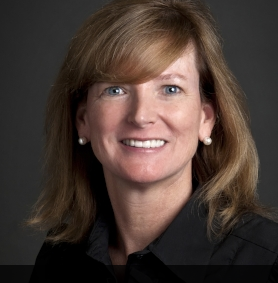
The Alliance also saw longtime staff physician and leader, Dr. Sheryl Joyner, retire. In her honor the wellness program has been renamed the Dr. Sheryl Joyner Healthy Steps Program.
Congratulations to all the Alliance members and Dr. Joyner.
September is National Prostate Cancer Awareness Month
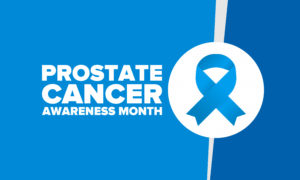
SHELBY, NC -- As September begins so does National Prostate Awareness Month. Prostate cancer is the most common non-skin cancer in men in the U.S., and the 4th most common tumor diagnosed worldwide. In the U.S., 1 in 8 men will have prostate cancer in his lifetime. For Black men, that number is even higher. One in six black men will develop prostate cancer and Black men are more than twice as likely to die from the disease.

Dr. Robert Gossett of Carolina Urology Partners in Shelby says that this month is a good reminder to talk to your doctor about your prostate. "It may be time for a screening," he says, "Black men should be screened earlier in their lives, possibly at the age of 45. For most men, you likely don't need to be screened under the age of 50 unless you have a family history of the disease."
"Education, however, is as important as testing," Gossett says. There are more options to learn about prostate cancer than ever. Gossett recommends www.cancer.org or www.urologyhealth.org to answer many of your questions.
Dr. Gossett says that a simple tool to remember when it comes to your prostate health is that "If its healthy for your heart, its healthy for your prostate."
For more information on Prostate Awareness Month click here.
To find out more from Dr. Gossett visit Carolina Urology Partners in Shelby.
NC Supreme Court Issues Opinion Regarding Nursing Liability

RALEIGH -- The North Carolina Supreme Court issued a decision on August 19, 2022 that may impact nursing liability in medical malpractice cases.
In Connette v. The Charlotte Mecklenburg Hospital Authority, the Court held that a CRNA could be subject to liability for medical malpractice while acting under the supervision of a physician when collaborating in the development of a patient treatment plan. Previous North Carolina case law largely exempted nurses from liability when performing duties under physician supervision unless (1) the nurse negligently performed his or her duties, or (2) the nurse carried out an order that was so clearly negligent that any reasonable person would expect substantial patient harm to occur.
In reaching its decision, the Court considered whether advance practice registered nurses owe a statutory, professional duty of care to patients when they are involved in the planning of, collaboration on, and selection of a patient’s treatment. The Court specifically concluded that “even in circumstances where a registered nurse is discharging duties and responsibilities under the supervision of a physician, a nurse may be held liable for negligence and medical malpractice in the event that the registered nurse is found to have breached the applicable professional standard of care.”
It is important to note that the Court’s decision does not change any current statutory or regulatory requirements related to physician supervision. However, the decision does open a potential new avenue for nurse liability that trial courts must determine how to apply in medical malpractice cases.
In a dissenting opinion, Justice Barringer remarked that the policy change should have been by the General Assembly and not the Court.
The full opinion can be accessed here.
NCDave Fines Begin Tomorrow

RALEIGH -- North Carolina is making the switch to electronic death certification using the NCDAVE platform and the deadline to convert is September 1, 2022. NCDAVE makes the job of Medical Certifiers easier, improve accuracy, and simplify the completion of death certificates. It will also better serve the families of decedents.
Senate Bill 138 says that beginning September 1, 2022, death certificates must be filed electronically with the Office of Vital Records via the North Carolina Database Application for Vital Events (NCDAVE) system. After that date fines begin. Assessments begin with a penalty of $250 for the first violation, $500 for the second violation, and $1,000 for the third and each subsequent violation.
Registration is simple. The North Carolina Division of Public Health Office of Vital Records has a secure, web-based statewide system for electronic death certificates.
To complete your form and get started click here.
For better or worse, Pumpkin Spice Latte is back already!

With 25 days still to go until Autumn begins, the Pumpkin Spice Latte is back.
Starbucks announced Monday it's bringing back the beloved fall drink for its 19th year today.
The PSL, as the drink is commonly called, combines espresso and steamed milk with flavors of cinnamon, nutmeg and clove. Customers can order it hot, iced or blended.
Starbucks brought back the PSL a little later than usual. Last year, the chain launched the Pumpkin Spice Latte on Aug. 24.
Dunkin' beat Starbucks this year, kicking off it's fall line of drinks including the PSL and several other fall favorites on August 10.
North Carolina Medical Society Alliance Celebrates Centennial - Part 2
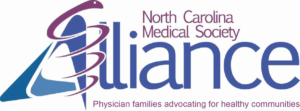
RALEIGH -- Next year the North Carolina Medical Society Alliance celebrates 100 years! The Alliance works to improve the health of all people in North Carolina.
In advance of the anniversary, NCMS Alliance is sharing some history and stories of it’s history. Here is the second in a series.
Looking Back at the 1930’s...
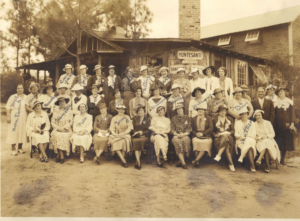
Photo courtesy NCMS Alliance. Taken 1935
The North Carolina Medical Society Alliance Centennial
Seven years after the formation of the Woman’s Auxiliary of the Medical Society of the State of North Carolina, the organization entered the 1930’s and the Great Depression. At this point in their relationship, the North Carolina Medical Society determined the basic policies for the Woman’s Auxiliary and approved the Auxiliary’s special projects via an advisory committee. Funding beds at North Carolina tuberculosis sanitoria remained the primary project, with the first bed being named the McCain bed in 1934 and an endowment for its funding begun in 1935. Along with this effort, the Auxiliary launched a campaign to educate North Carolinians about tuberculosis and discussed as a group the effects of socialized medicine.
The second major project started by the Auxiliary was the Student Loan Fund, begun in 1930. These loans provided funds for the education of children of doctors who needed financial assistance. The first loans, for $100 each, were made available in 1933.
The Woman’s Auxiliary leadership began to establish standing committees to meet its goals. In 1933, the first historian, Mrs. Jasper A. Keiger, summarized information from the first ten years of the Auxiliary as part of a permanent record. Other committees started in the 1930’s include—
1932: The Public Relations Committee
1934: The Scrapbook Committee. Scrapbooks were displayed at each annual meeting.
1934: The Memorials Committee. The chairman recorded members’ deaths during the year and held a memorial service at the annual meeting.
1937: The Programs Committee. This group provided materials and planned programs to be implemented across the state.
1939: The Legislation Committee. This committee, working closely with the NCMS, informed the members of health legislation and asked for their assistance in lobbying for or against it.
Other highlights of the 1930’s—
1931: Amendments to the constitution were proposed to allow wives, daughters, mothers, and sisters of members of the Medical Society to become members of the Auxiliary.
1933: The first Executive Committee meeting was held at the S & W Cafeteria in Charlotte. A report from the treasurer, Mrs. A.B. Holmes, showed the recovery of $17.20 from a closed bank in Fairmont.
1936: The Woman’s Auxiliary of the Medical Society of the State of North Carolina name changed to The Auxiliary to the Medical Society of North Carolina.
1937: The Annual meeting attracted 150 registrants who heard about a plan to organize Auxiliaries into districts. Members were warned that State Medicine threatens and were asked to speak against it.
1938: Mrs. Paul P. (Sadie Lou) McCain was awarded the first life membership in the Auxiliary.
Two of the NCMSA's Earliest Presidents
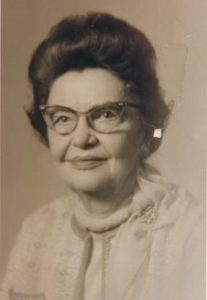
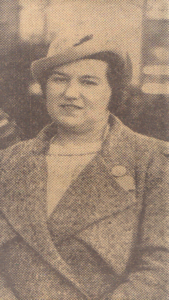
For more information or to join click here.
NCDHHS, EqualityNC Partner for Monkeypox Virtual Town Hall

RALEIGH -- NCDHHS is partnering with EqualityNC to host another virtual town hall Tuesday, Aug. 30 at 6:30 p.m. to share information with North Carolinians about the monkeypox virus, what to look out for and where to find vaccines and treatment.
Participants can attend the event via the Zoom link or via One Tap Mobile at US: +1 669 254 5252. American Sign Language (ASL) interpreters and Communication Access Real Time Translation (CART) captioning will be available.
NCDHHS continues to work with trusted vaccine providers and community partners to close disparities and reach North Carolinians most at risk for getting monkeypox. The department has already hosted one virtual town hall and visited with the health department and community organizations in Mecklenburg County to discuss their response to the outbreak, address concerns and reach those who may be in need of testing and vaccination. Additionally, NCDHHS partnered with federal and local entities to distribute the monkeypox vaccine at recent Charlotte Pride events.
Public health officials urge North Carolinians to get checked, tested and vaccinated to reduce spread of monkeypox. Testing is widely available for everyone, and, as vaccines continue arriving in the state, health officials encourage those at-risk and eligible to seek vaccination as quickly as possible.
You can find the latest information about monkeypox cases in North Carolina, along with details on North Carolina’s response to the outbreak on the NCDHHS website at: ncdhhs.gov/monkeypox.
US government to end free at-home Covid test program this week

(CNN) -- The federal government is ending its free at-home Covid-19 test program this week, citing a lack of funding and efforts to preserve supply ahead of an anticipated fall surge in cases, a White House official told CNN on Sunday.
Both the White House and the website where people can claim their tests blamed Congress for failing to provide additional funding for the program, which provided up to 16 free tests per household since the beginning of the year.
“Ordering through this program will be suspended on Friday, September 2 because Congress hasn’t provided additional funding to replenish the nation’s stockpile of tests,” the Covid.gov website reads.
The administration launched the initiative, which shipped rapid tests to Americans via the United States Postal Service, in January amidst a wave in Omicron variant cases and limited testing availability. However, officials have warned for months that, absent additional funding from Congress, the administration would be forced to roll back its Covid-19 response efforts.
“We have warned that Congressional inaction would force unacceptable tradeoffs and harm our overall COVID-19 preparedness and response—and that the consequences would likely worsen over time,” the White House official told CNN. “Unfortunately, because of the limited funding we have to work with, we have had to make impossible choices about which tools and programs to invest in—and which ones we must downsize, pause, or end all together.”
Still, the official said the administration would “expeditiously resume distribution of free tests through COVIDTests.gov” if and when Congress allocates additional funding, but “[u]ntil then, we believe reserving the remaining tests for distribution later this year is the best course.”
Free Bootcamp for Physicians on Running A Successful Business

RALEIGH -- Running a successful business takes more than the things you learned in medical school.
Medical Economics is sponsoring a Physician Bootcamp to help!
The event is Thursday, September 15, 2022, from 3 - 7 pm EST. It is co-sponsored by Coachcare, Elation, ISMIE, and MDVIP.
The event will bring you all new curated resources to help your practice operate more efficiently, while also improving patient care. Experts will be there to answer any questions you might have about malpractice, membership medicine, remote patient monitoring, and EHRs.
Registration is free.
For more detailed information and to register online click here.
Melanoma Monday: Keeping Your Skin Clean in Summer!

RALEIGH -- All summer NCMS is bringing you tips to enjoy the great Carolina outdoors. Melanoma Mondays run weekly until Autumn with information from on how to keep your skin beautiful. Today it’s about changes you should make in your skin care routine.
A solid routine should be applicable to all seasons and all climates. Summer may be one of the toughest.
Here are some tips:
- Lighten up your skin care routine. Swap out heavier cleansers for lighter, foaming options.
- Use a dual-purpose moisturizer. Consider switching to a combination moisturizer and sunscreen during the summer.
- Don't stop moisturizing (even if it is hot and humid)!
- Exfoliate more often
- Enjoy the water, but cut down on tub time. In summer you may be showering more often and that can lead to dry skin. Keep showers to for to five minutes.
- Finally, stay in the shade as much as possible and use sunscreen liberally!
Is Monkeypox Past Its Peak?

Global cases of the monkeypox virus dropped 21 percent compared to the week before, the World Health Organization said on Thursday. Most of the decline occurred in Europe.
In the US, new cases have dropped 25 percent in the past two weeks. That is per the Washington Post. Health officials in New York City say cases are on the decline there.
While most health leaders are encouraged and optimistic about the downward trend, they also advice that the threat is still not over.
NCMS teams with ASAM for Pharmacy Access Survey

The American Society of Addiction Medicine (ASAM) has recently seen a noticeable increase in reports that patients needing pharmacotherapy for the treatment of an opioid use disorder (OUD) are unable to attain their prescriptions due to pharmacy refusals to fill prescriptions, as well as inadequate supplies of buprenorphine.
In response, ASAM is conducting a Pharmacy Access Survey to provide insight into where these alarming denials are occurring, what medications are impacted, as well as the duration of delays that patients are experiencing in accessing their medications.
The North Carolina Medical Society, along with other state medical societies, is partnering with ASAM by encouraging its members to respond to the survey. Responses to the survey will aid ASAM in understanding the magnitude of the problem and formulating a response to ensure that patients are able to timely access these life-saving medications.
The survey can be accessed here: https://www.surveymonkey.com/r/asampharmacy
In the News: Dr. Michelle Laws is a Hometown Hero
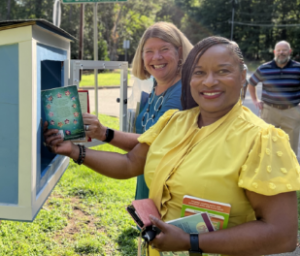
CHAPEL HILL, NC -- The North Carolina Medical Society's own Dr. Michelle Laws is being recognized as a Hometown Hero! Her work as the founder of Busy Bees Volunteer Corps is singled out by chapelboro.com. Recently she installed a Little Free Library in Chapel Hill at the corner of Billie Holiday Court and Eastwood Road. It's part of an effort to make books accessible to public housing.
To read the full story click here.
Congratulations to Dr. Laws from everyone at NCMS.
Get a Gold Star with these back-to-school vaccine guidelines

The North Carolina Department of Health and Human Services has released its 2022 guidelines for vaccines. the Know Before You Go Back to School presentation includes all you need to know for your family.
It has information on vaccines for children under five, fall booster considerations, the CDC Fall COVID-19 Vaccine Operational Plan, info on boosters, as well as information on monkeypox in North Carolina.
To see the full Readiness Discussion click here.
Melanoma Monday: Summer Skin Care for People Over 55

RALEIGH -- All summer NCMS is bringing you tips to enjoy the great Carolina outdoors. Melanoma Mondays run weekly until Autumn with information from your fellow NCMS members. Today it’s Dr. Vikas Patel from North Carolina Dermatology Associates in Raleigh with how to enjoy the summer and keep your skin looking great if you are over 55. Enjoy!
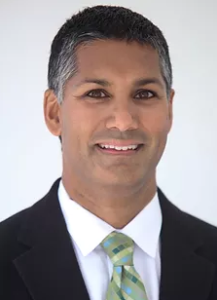
Vikas Patel, MD
Have fun, enjoy the sun, and keep your skin looking great if you are over 55!
The clock is ticking down on summer, but North Carolina still has plenty of sunny days left this year when you'll want to get outside and enjoy yourself. For many people over the age of 55, spending time in the sun comes with increased concerns about how to keep your skin safe and looking good. Dr. Vikas Patel has three pieces of advice for you.
- To help prevent wrinkling, aging, and skin cancer broad-spectrum sunscreen with SPF 30 or higher is imperative to protect your skin from UVA and UVB rays. In addition to sunscreen, wear sun protective clothing to help prevent UV exposure.
- After time in the sun it is also important to remember your skin. For dry skin, apply a fragrance-free moisturizer daily after bathing. This alleviates dry skin and restores the skin's barrier function.
- Pay close attention to changes in your skin. Regularly check your skin for new or changing spots that look different from other spots on your body. In addition, look for lesions that are bleeding or itching.
Most importantly enjoy yourself, do it safely, and remember to treat your skin with care as you get older!
Dr. Patel is available to talk skin care with you at his practice in Raleigh. To contact her click here.
Become an influential leader and drive transformation. Apply Now to The Future Clinician Leaders College

RALEIGH -- With the individual core as a foundation for leadership development, the Future Clinician Leaders College course prepares students for the leadership journey, allowing the individual to establish a strong sense of purpose and understanding of who they want to be as a leader.
The format for the program builds on three explicit design elements: Theory and Knowledge (Knowledge); Clinical Application (Skills), and Reflection and Dialogue (Abilities).
Alumni of the program are speaking out about on the program's impact on their lives:
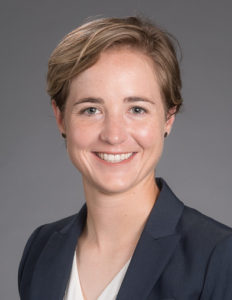
2022 FCLC Alumni: Lauren Autry, MMS, PA-C
“Future Clinician Leaders College provides an opportunity to equip yourself with skills needed not only during medical training but once out in the workforce. Through dynamic meetings and solo work, learning about my own leadership skills and pitfalls has enhanced my ability to communicate with colleagues and foster professional relationships. The program’s return on investment is immeasurable and I would encourage any student to apply!”
You were called to lead – Apply now by clicking here!
Federal Judge Reinstates North Carolina's 20-week Abortion Ban
Abortions in North Carolina are no longer legal after 20 weeks. U.S. District Judge William Osteen, Jr. reinstated the 20-week ban at the urging of Senate leader Phil Berger and House Speaker Tim Moore. It follows the overturn of the 1973 U.S. Supreme Court ruling Roe v. Wade decision in June.
NC Health News reports that the change cuts the limit of time pregnant people have for seeking abortions in the sate from fetal viability, which typically falls between 24 and 26 weeks of pregnancy. In 2020 there were 30 abortions performed in the state at 21 weeks or later or 0.1 percent of total abortions in the state.
Further statistics on abortion in NC in 2020:
2020 NC Resident Abortion Statistics from the State Center for Health Statistics
- 25,058 abortions were provided to NC residents (98.5 percent obtained in-state).
- 56.6 percent of abortion seekers were 20 to 29 years old.
- 49.3 percent of abortion seekers were African American, 27.9 percent were white and 13.1 percent Hispanic.
- 58.7 percent of abortion seekers had 13+ years of education.
- Two-thirds of abortion seekers were already parents to one or more children.
- A total of 48 NC residents obtained abortions taking place after 21 weeks. Thirty of those procedures were performed in-state and 18 took place out of state.
The change has physicians and Planned Parenthood concerned and it comes with ramifications on pregnancy care.
To read the full article with comments from doctors and professionals across the state click here.
NCMS in the News
The North Carolina Medical Society is in the news again. This time in the Triad Business Journal and featuring the Kanof Institute for Physician Leadership Future Clinician Leaders College (FCLC)!
Kristina Natt och Dag, PhD, MA is the NCMS Vice President of Education and Training. She is noted in the article as critical to the development of FCLC.
FCLC is open to students from North Carolina who are training in health professions.
Congratulations to Tina and FCLC.
To read the entire article please click here.
One Month Later: Checking in on the 988 Suicide Hotline

The national suicide hotline 988 number went live on July 16, 2022. One month later, are cracks in the system already showing up?
The easy-to-remember number was hailed by mental health providers, lawmakers, and people across the country. In the first month, however, other opinions on the service have started to arise. Some are taking to socila media to voice their concerns and some are even warning people not to use it.
Aneri Pattani of NC Health News did an in depth look at what is happening. She reports that one Instagram post saying "988 is not friendly. Don't call it, don't post it, don't share it" has more than a quarter million likes. Other posts on Twitter and Instagram echo that message with some saying the hotline sends law enforcement to check on people at risk without their consent and people from the LGBTQ+ community and communities of color may be forced into treatment.
One of the authors of a post critical of 988 says having law enforcement arrive often leads to a trip to an emergency room or psychiatric hospital. That further traumatizes the person in need. Officials from 988 say they understand that risk and counselors are trained to work with the caller in a variety of methods. Most calls are de-escalated without law enforcement. If a caller cannot or will not collaborate on a safety plan and the counselor feels that caller will harm themselves imminently is when emergency services are called.
Pattani's article has more cases on both sides of the issue as well as additional resources. Please take time to read the full article by clicking here.
CMS Encouraging Health Care Providers to Prepare for End of COVID-19 Waivers and Flexibilities

The Office of Legislation Centers for Medicare and Medicaid Services (CMS) is preparing the health care system for operation after the COVID-19 public health emergency (PHE).
At the beginning of the PHE, CMS used emergency waiver authorities and various regulatory authorities to enable flexibilities so providers could rapidly respond to the pandemic. Now, CMS has developed a comprehensive and streamlined approach to reestablish certain health and safety standards and other financial and program requirements for the eventual end of COVID-19 PHE. Most waivers and and flexibilities will terminate at the conclusion of the PHE. Many already are terminated.
CMS wants providers to prepare now and begin moving to reestablishing previous health and safety standards for and billing practices.
CMS has released a fact sheet to summarize the current status of Medicare blanket waivers and flexibilities, a Health Care System Resiliency fact sheet, and a blog for creating a roadmap for the end of COVID-19 PHE.
Find them here:
Health Care Resiliency fact sheet
Creating a Roadmap for the End of the COVID-19 Public Health Emergency blog
DHHS Chief Deputy Secretary Kody Kinsley: "We have the tools now." His response to the end of the Emergency Order and the future of monkeypox

RALEIGH -- "We have the tools now to manage COVID so it doesn't manage us." That is the latest from DHHS Secretary Kody Kinsley on where North Carolina stands as the COVID-19 Emergency Order ends.
After two years of mask requirements, closed restaurants and shops, at-home schooling, Zoom, Facetime, quarantine, and stay-at-home orders North Carolina is entering a new phase with the infectious disease. "What is clear is that COVID is here to stay" Kinsley says, "and we're seeing that even with a large number of cases, it is the lack of vaccination that continues to put people at risk."
That leads Kinsley to offer some guidance and advice to the medical community. "First and foremost," Kinsley says, "vaccines and boosters and staying up to date with your vaccine is the most important way to prevent severe illness." You are five times more likely to die from COVID if you are not vaccinated. "If there is one thing you can do to reduce your risk by five it is to get your vaccine."
Kinsley also says that testing is paramount to moving quickly to fight COVID. "Keep testing kits on hand and use them as soon as you have any symptom. Be quick to test. There are still testing pick-up locations across the state and we're providing additional tests."
Have a treatment plan before you test positive. "Whether you're going to go to an E-clinic or reach out to your primary care physician," Kinsley says, "have that plan in place now. You make your plans in advance of the storm."
Lastly, Kinsley reminds everyone that masking is still a good idea. "Right now, when case levels are high, you may want to put on a mask if you're going to be in a room full of people." Kinsley says that he continues to evaluate where he is and uses his mask often. "When I am in rooms with large numbers of people I evaluate and decide the risk level."
"We are seeing that with even with a large number of cases, people still end up in the hospital. I am looking forward to the fall when I expect to see more tailored vaccinations that have been updated," Kinsley says. "That will give people another tool in their arsenal to help protect themselves against more recent variants."
Kinsley says in the future, annual treatments may be necessary, but another option is nasal vaccination, but that may be several years away. "If we can provide more protection in the nasal cavity than that may be a path." Variant neutral vaccines may also be a future option.
He always goes back to where it all began. Your complications from COVID are greatly decreased by getting a vaccine. He encourages everyone to lean into testing and keep test kits on hand.
"I also want to remind people that when it comes to treatment, two thirds of the people in North Carolina are likely eligible for treatments like Paxlovid." Kinsley reminds doctors and patients to seek out these treatments early. "We want to make sure people are taking advantage of the options we have."
Currently there are 1.3 million people in the state who are uninsured, so reaching out to those people and the underserved communities is important. Kinsley reminds physicians that now is a good time to invest in outreach to those who need it most.
As for monkeypox, Kinsley says it is "not new at all. It has been around for quite some time and it is not COVID and we don't have the same questions and concerns." Providers should "test, test, test, test, test. There is no limit on laboratory capacity for testing. While we are seeing this virus in certain groups, we know that, like all viruses, it won't stay there. It will spread everywhere." He advises providers to test as much as possible and stop monkeypox as quickly as possible.
Data shows most cases are in men who have sex with men and 70% of those are African-American. Kinsley says that right now "is when we (the state) has limited resources so have to prioritize those individuals. That is why we are offering vaccines to those who need it most right now."
He also reminds that monkeypox comes from prolonged skin-to-skin contact with someone who has an infection. It is not from casually passing someone or breathing near someone casually. It is not the same protocol seen in COVID-19.
He also says that providers need to reach out to patients who meet the criteria. "I think reaching out to them and building awareness is really powerful. It is the kind of care we want to see."
"If there is one thing we should take away from the State of Emergency it should be this," Kinsley says, "its when North Carolinians come together and step up there is nothing we can't accomplish. More than any legal authority or legislative process, it has been the work of people from all across the state that has been, frankly, inspiring. It has been the helpers and particularly the members of the Medical Society and across the entire healthcare system who have stepped forward and stepped up time and again. I realize now is the time we have to all step up for them and support them. The end of the state of emergency is not nearly as monumental as the amazing work done during this period of time."
CDC Announces Sweeping Changes to Restore Public Trust
 CNN -- The US Centers for Disease Control and Prevention have been the nation's foremost public health agency for three quarters of a century, but now it says it is time for a change.
CNN -- The US Centers for Disease Control and Prevention have been the nation's foremost public health agency for three quarters of a century, but now it says it is time for a change.
Director Rochelle Walensky has laid out plans to overhaul how the agency works. She plans to remake the culture of the agency so it can move faster when responding to a public health crisis. She also wants to make it easier for the CDC to work with other parts of the government and to simplify the CDC website.
The changes aim to restore public trust after acknowledged missteps during the COVID-19 pandemic including little capacity for testing in the early months. The CDC was widely criticized throughout the pandemic for what some saw as confusing and contradictory guidance. Many also felt the agency moved to slowly.
Walensky plans to bring HHS Deputy Secretary Mary Wakefield to the CDC to oversee the reorganization.
Among the changes is a move of the Division of Laboratory Science and the Office of Sciences to report directly to the CDC director, a new office of intergovernmental affairs, and a new equity office to increase diversity.
Walensky is also calling for additional funding and greater authority over getting crucial data from states. That would require Congressional approval.
Move over Thin Mints! The new Girl Scout cookie Raspberry Rally is here!

The Girl Scouts are ready to make 2023 the year of the raspberry. A new cookie will be available next year called Raspberry Rally.
Girl Scouts of the USA announced Tuesday that a sister cookie to Thin Mints will be available next year. Raspberry Rally is "infused with the raspberry flavor instead of mint and dipped in the same delicious chocolaty coating," the group said.
It is the first cooking available only for online purchases and delivery. Girl Scouts are hoping it will enhance e-commerce sales and entrepreneurial skills.
Girls Scout Cookie Season in nationally between January and April.
A countdown to the Raspberry Rally and how to order online is available by clicking here.
Animal Tranquilizers Making Street Drugs More Dangerous

ER doctors and internal medicine physicians already know the challenges that the steadily rising fentanyl and Opioid crisis is causing. Making matters worse are the ever-changing ways people are mixing deadly drugs to get high.
Animal tranquilizers are now showing up in samples across the country. Is that part of the increasing number of drug overdoses? Some groups are taking a close look at Xylazine, which is also known as “tranq” or “tranq dope,” which surged first in some areas of Puerto Rico.
The statistics are alarming and could change the way overdoses are treated.
This article from KHN explains what is happening and what you need to know. Read it here.
FDA OKs Over-the-Counter Hearing Aids. Sales Could Begin in October
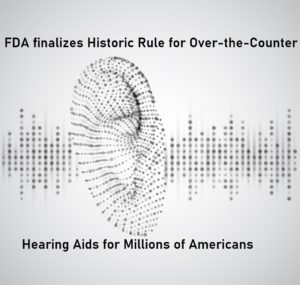
NPR -- Adults with hearing problems will be allowed to buy hearing aids directly from stores, pharmacies, and online retailers with no prescription nor a doctor's appointment in October.
The US Food and Drug Administration issued a final rule Tuesday creating a new category for over-the-counter hearing aids. The Biden administration says it will make the devices more accessible and affordable for millions of Americans. It follows years of work by lawmakers.
The rule does have some restrictions and applies only to certain air-conduction hearing aids for people over 18 with mild to moderate hearing impairment. Those with severe hearing loss and pediatric devices will remain prescription devices.
The FDA ruling is available to read by clicking here.
Dealing with Burnout? Not Sure What To Do? Listen To This
RALEIGH -- Are you feeling burned out? Stressed? Out of sorts?
Those are common emotions for physicians and PAs, but there are ways you can start feeling better.
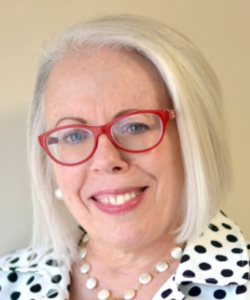
Dr. Gail Gazelle, MD
Dr. Gail Gazelle, MD, Harvard Medical School offers very practical yet useful recommendations on how physicians and PAs can start addressing mental health issue and burnout. She says there are numerous services, including Physician Hotline, that can help doctors prevent and cope with burnout.
Here advice may help you!
Click here to listen to her advice.
Join, Renew, or Donate to NCMS on National Nonprofit Day!

RALEIGH -- Today is National Nonprofit Day and NCMS is celebrating!
On August 17th, National Nonprofit Day (NND) recognizes the goals and positive impacts nonprofits have on communities and the world.
Sherita J. Herring founded National Nonprofit Day to educate, enlighten and empower others to make a difference while acknowledging those in the trenches, impacting lives every day -- like members of the NCMS!
The Tariff Act of 1894, signed into law on August 17, imposed the first federal income tax on corporations, including exemptions for nonprofit corporations and charitable institutions. With a few modifications, nonprofit exemptions remain a solid part of the law and have served significant benefits for communities and the economy.
The Registrar at National Day Calendar declared National Nonprofit Day to be observed annually in 2017.
Through nonprofits, awareness, research, and aid reach the people who need it most. Nonprofits also generate tremendous benefits to their surrounding communities and the broader world.
For example, following the recent U.S. recession in 2012, the nonprofit sector provided 5.4% of the nation’s entire GDP (gross domestic product), or $887.3 billion. Non-profits continuously employing nurses, web developers, lawyers, computer engineers, and more (sources: John Hopkins and Tactical Philanthropy Advisors reports).
NOW would be a great time to donate, join, or renew your membership in North Carolina Medical Society.
Click here for all you need to know to make a difference.
Monkeypox. A New Threat for Returning College Students?
NPR -- Ahead of the new school year, colleges across the country are repurposing the tools they developed during the pandemic to address the monkeypox outbreak, which the White House recently declared a public health emergency.
The risk of contracting monkeypox is low, but colleges are getting ready. Monkeypox is an infection that can take weeks to recover from, leaving sick students out of class for weeks and possibly entire semesters.
In addition, because 99% of cases in the U.S. are related to male-to-male sexual contact there is some concern about stigma and bias against the LGBTQ community.
It is a new road for colleges to travel, but the COVID pandemic may have them better prepared. Click here to find out more about what students and school administrators have to say.
If you would like to contribute your advice, please reach out to NCMS for an NCMS On Point blog submission.
Millions of Americans Soon to be Living in 'Extreme Heat Belt'
 CNN -- Millions of Americans are about to be living in areas where temperatures will be above the threshold of the National Weather Services' "extreme danger" category. That is when the heat index is more than 125 degrees. This year alone, about 8 million people in the US will face those brutal temps.
CNN -- Millions of Americans are about to be living in areas where temperatures will be above the threshold of the National Weather Services' "extreme danger" category. That is when the heat index is more than 125 degrees. This year alone, about 8 million people in the US will face those brutal temps.
Worsening heat and humidity as a result of climate change will bring extremely dangerous heat indices to much of the United States in the next 30 years, increasing both the intensity and frequency of the hottest days of the year, according to a new study published Monday.
What is being called an "extreme heat belt" will stretch all the way from Texas to the Great Lakes.
It will impact other parts of the country as well. In the southern half of the country, the number of hottest days will grow to around 30 – meaning what was once the hottest week of the year will become the hottest month by the 2050s.
More on the full story and what to expect soon is in an in-depth article you can read by clicking here.
HHS Investing Millions to Strengthen Health Care and Access in Rural Communities, More than $700K coming to NC

WASHINGTON -- The U.S. Department of Health and Human Services (HHS), through the Health Resources and Services Administration (HRSA), announced investments of nearly $60 million to grow the health workforce and increase access to quality health care in rural communities, including nearly $46 million in funding from President Biden’s American Rescue Plan.
Nearly $46 million in American Rescue Plan funding will support 31 awardees to expand health care capacity in rural and tribal communities through health care job development, training, and placement. This funding includes support for critical health workforce needs in rural areas such as dental hygienists, medical or dental assistants, community-based doulas, and other frontline health care workers.
Nearly one in five Americans lives in a rural area, and rural communities are becoming even more diverse. However, health disparities between rural and urban areas tripled between 1999 and 2019, with rural residents experiencing higher rates of heart disease, respiratory disease, cancer, stroke, unintentional injury, and suicide; and higher risk of maternal morbidity and mortality. Access to quality health care is at the heart of these issues.
Bad news for NC. State Ranked 18 out of top 20 States with Physician Shortage

RALEIGH -- Across the nation, there is a shortage of primary care physicians, however, some states are shouldering a heavier share of the physician shortage.
According to America’s Health Rankings, an annual report released by the United Health Foundation, North Carolina ranks number 18 out of the top 20 states where the shortage of primary care physicians including internal medicine, family practice, obstetrics and gynecology, pediatrics, geriatrics and general practice is worth paying close attention.
Medical Economics took a closer look and found the places where desperation for help is starting to set in. See the list by clicking here.
Melanoma Monday: Fun at the Pool!

RALEIGH — All summer NCMS is bringing you tips to enjoy the great Carolina outdoors. Melanoma Mondays run weekly until Autumn with information from your fellow NCMS members. Today it’s Dr. Shaily Bhatnagar from Family Dermatology in Apex with how to enjoy a day at the pool with beautiful skin. Enjoy!
Shaily Bhatnagar, MD
Have fun and enjoy a day at the pool!
August is at the half-way point and there is still a lot of fun in the sun left! For many people, time by the pool is a summer ritual. Dr. Shaily Bhatnagar has three pieces of advice to keep your skin looking great while you are having fun.
- Pay attention to the time! Avoid the part of day when sunlight is most intense. That means go inside or get out of the sun between 10am and 4pm.
- Think about what you are wearing! Wear sun protective clothing such as rash guards and UPF 50+ swimsuits. Those will help prevent sun damage while you are in the water.
- Don't forget the sunscreen! Use SPF 50 or higher at all times. Reapply every two hours and after each dip in the pool. It is also a good idea to reapply often if you are sweating a lot.
Most importantly enjoy yourself, but do it safely!
Dr. Bhatnagar is available to talk skin care with you at her practice in Apex. To contact her click here.
NCMS Responds to the End of NC COVID-19 State of Emergency

RALEIGH -- On March 10, 2020, Governor Roy Cooper ordered his first COVID-19 emergency order. Since then, he has issued about 120 orders and directives as part of the state’s pandemic response.
On March 14, 2020, the state banned mass gatherings and shut down schools, three days later restaurants and bars were shuttered for dine-in service. That day unemployment benefits were expanded.
Then, on March 27, 2020, Cooper issued the statewide stay-at-home order.
Since then, many restrictions have expired or have been replaced by other, new orders. The state of emergency, however, remains in place. It expires Monday, August 15, 2022.
While there has been much debate over how long it should last, both Cooper and DHHS Secretary Kody Kinsley have defended it, both saying it gives them flexibility to help doctors, hospitals, and medical providers.

As it ends, both Cooper and Kinsley are in agreement that new legislation will fill the void left by the emergency order. In a letter to legislative leaders on the second anniversary of the order, Kinsley wrote, “There are legislative actions that could enable the Department to continue to adequately manage COVID-19 without a state of emergency.”
While signing the new state budget, Cooper said, “The budget includes the changes in the law requested by the NC Department of Health and Human Services to ensure flexibility that is currently made possible by the Governor’s COVID-19 State of Emergency.”
What does this mean for the average North Carolinian? Well, not much. Most major decisions have fallen to local governments and things like mask mandates and school restrictions have already been lifted.
Just this week the CDC is easing COVID-19 guidelines, dropping the recommendation that people quarantine after contact with an infected person and ending the six foot apart recommendation when in public.
From the beginning of the pandemic, the North Carolina Medical Society has supported Governor Cooper’s efforts to keep it under control. The NCMS advocates on behalf of physicians and PAs and their patients and has done so for more than 170 years. When the emergency order was first enacted the NCMS said “Our leadership seriously weighed the consequences such a position would have on our communities – both businesses and individuals. As medical professionals sworn to protect the health of our patients, a stay-at-home order such as the Governor issued is warranted and necessary.
Today, we continue to stand with the Governor and Secretary Kinsley. New legislation is in place to protect our members and all North Carolinians.
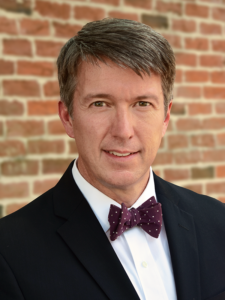
NCMS CEO Chip Baggett says, “this move was expected and supported by NCMS. The governor and legislative leaders in the state have worked to ensure that North Carolina can continue to move forward and support medical professionals as the pandemic continues. Our ongoing dialogue with members reminds us that anxiety over COVID-19 persists. We will, as always, work to maintain quality health care for all North Carolinians.”
Baggett adds, “working for our members and for the health of North Carolinians remains our top priority.”
The order ends Monday, 29 months after it began. Since then, the Department of Health and Human Services reports nearly 3 million people have tested positive in the state and more than 25,000 have died.
Today is National Middle Child Day

Elizabeth Walker created National Middle Child Day in the 1980s. The first celebrations took place on the second Saturday in August. However, along the way, it has become generally accepted to celebrate it on August 12th. In a newspaper article submitted by her grandson, Litton Walker, III, Walker stated that she wanted to create a National Day to honor those children “born in the middle of families” who she felt were “left out.” The name was later changed to National Middle Child Day.
Here are some fun facts if you are the middle child:
- They are going extinct. In the '70s, the most common family unit had four kids or more, according to New York Magazine. Today, nearly two-thirds of women with children only have one or two. As the median family size continues to decrease, middle children will increasingly become a rare breed.
-
More than half of U.S. presidents were middle children. You might have heard that the majority of presidents were firstborns, but that's actually not true. In fact, 52% of commanders-in-chief were middle children, a fact often overlooked as men were historically considered "firstborn" even if they had older sisters. Some of the most famous middleborn presidents include Abraham Lincoln, Theodore Roosevelt, and John F. Kennedy.
-
Famous middles include Jennifer Lopez, Anne Hathaway, Bill Gates, Madonna, Elena Kagan, Nelson Mandela, Susan B. Anthony, Walt Disney, Martin Luther King Jr., and Michael Jordan.
-
There's an official middle child wine. It's from a California winery called Middle Sister that produces bottles like Rebel Red, Sweet and Sassy Moscato, and Goodie Two Shoes Pinot Noir.
-
Middle Child Syndrome is a theory initially posited by Austrian psychologist Alfred Adler in the early 20th century. The gist is that middleborns feel left out and resentful as they don't receive the same privileges as the oldest or the pampering of the youngest.
-
Some of the biggest bands in history include middles. Family acts like Haim, Hanson, The Band Perry, The Osmonds, The Beach Boys, and even the Jonas Brothers wouldn't be the same without the middle child. In fact, all three members of the Bee Gees — Barry, Robin, and Maurice Gibb — were the middle of five kids. And they're one of the best-selling musical groups of all time.
Italy gives Domino's the boot!

The last 29 Domino’s branches in Italy have officially closed. The Financial Times reports Domino’s began operations in pizza’s motherland in 2015, but it was unable to deliver on its plan to eventually open 880 restaurants there.
Domino’s made an effort to use locally sourced Italian ingredients, and hoped to set itself apart from local competition by offering the then-extremely rare service of home delivery. It appears, however, that Italians just didn’t care to have their crust stuffed with authentic, beautifully marbled gorgonzola.
Also a problem: The pandemic opened up stiff competition in the delivery space, offering locals better pizza at home and leading the company’s Italian franchise partner, ePizza SpA, to file for bankruptcy in April.
Other American chains doing “Italian but worse” haven’t fared so poorly in the country, though. Starbucks has plans to open 26 more stores by the end of 2023, and last week, CEO Howard Schultz said the chain was flourishing there.
Major test of possible Lyme vaccine for first time in 20 years
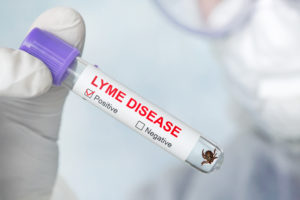
(AP) — Researchers are seeking thousands of volunteers in the U.S. and Europe to test the first potential vaccine against Lyme disease in 20 years.
Now Pfizer and French biotech Valneva are aiming to avoid previous pitfalls in developing a new vaccine to protect both adults and kids as young as 5 from the most common Lyme strains on two continents.
“There wasn’t such a recognition, I think, of the severity of Lyme disease” and how many people it affects the last time around, Pfizer vaccine chief Annaliesa Anderson told The Associated Press.
The full story and more on the test is available by clicking here.
Questions about Novavax's COVID-19 Vaccine? We've got you covered

Novavax COVID-19 vaccine is ready for use
Yale Medicine has the latest information on the Novavax vaccine, the fourth to be authorized in the United States for the prevention of COVID-19.
The information includes the efficacy of the vaccine, who is eligible to take it, where it is authorized, and a host of other considerations.
As the vaccine becomes available, this is to help you better inform your patients seeking the vaccine.
Click here for the full report.
August is National Immunization Awareness Month
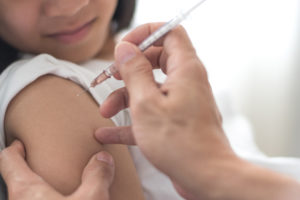
CDC -- National Immunization Awareness Month (NIAM) is an annual observance held in August to highlight the importance of vaccination for people of all ages. The Centers for Disease Control and Prevention have put together a long list of resources to help you this month and throughout the year.
Included resources to encourage routine childhood vaccinations, toolkits for reaching parents and patients, newsletter templates, and much more.
To see the full list of all you can do to help your patients and staff click here.
Registration Now Open for NC AHEC Practice Management Academy
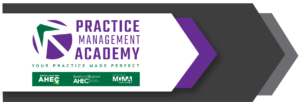
RALEIGH -- The NC AHEC Practice Management Academy was established to be cost-effective, relevant, and convenient training for practice managers. It also offers support and the chance to connect with peers.
It is endorsed by the North Carolina Medical Group Management Association. When you complete the course you receive formal recognition and CEU credits that can be applied to the continuing education requirement of the MGMA Certified Medical Practice Administrator certification.
Live sessions are every Thursday starting September 28, 2022. Registration is open now.
The scope of training and how to apply is available by clicking here.
Show leadership in medicine! Join Leadership College – Apply Now! Deadline is Monday

RALEIGH -- The Leadership College program provides skill-building in the critical areas of leadership as it relates to advocacy and change, including patient advocacy, policy development and governmental affairs.
The program will:
• Enhance individual leadership and skill development related to developing confidence in becoming influential leaders and drivers of change.
• Provide a platform to get engaged in the broader agenda of advocacy and policy development to better understand current issues, and
• Provide guidance on becoming advocates for the profession and understanding how to build stakeholder relations with multiple health care, human service, and community partners.
Don’t delay….Apply Now!
Anesthesia death has widow, doctors in Cape Fear region at odds

WILMINGTON, NC -- For more than two years, Shital Patel has been fighting for change. On August 3, 2020, her husband, Dr. Henry Patel, died after dental surgery. Dr. Patel's oxygen levels dropped during the surgery and attempts to intubate him failed.
Since then Mrs. Patel has been calling for the North Carolina Dental Board to require a certified anesthetist or anesthesiologist be in the room to monitor patients, just like medical doctors.
It is a case that has the medical community in the Cape Fear region talking.
Wilmington's WWAY has been covering the story and here is the most recent update:
Two years ago, Dr. Henry Patel went to Dr. Mark Austin’s oral surgery office in Leland for dental implants and never came home.
On July 30, 2020, Dr. Patel was put under anesthesia for the procedure and towards the end, his oxygen levels dropped. After a failed attempt to intubate him, 911 was called. He later died at New Hanover Regional Medical Center on August 3, 2020.
After Dr. Patel’s death, the Dental Board issued a consent order on May 6, 2021 suspending Dr. Mark Austin’s dental license. The order alleges that Austin prescribed controlled substances for his staff members, including those outside the scope of practicing dentistry, such as narcotic cough suppressants and sedative-hypnotic medications.
Just a few months later on August 11, Austin permanently surrendered his dental license.
Since his death, Dr. Patel’s wife, Shital Patel, has been fighting for change at the North Carolina Dental Board. She wants to make sure that anytime someone is placed under deep sedation, a certified registered nurse anesthetist or anesthesiologist is in the room to monitor the patient.
“Medical doctors aren’t allowed to do that. They are not allowed to give deep sedation or general anesthesia and perform a service for a patient even in a hospital setting. We think dental professionals need to be held to the same accountability,” Shital Patel said.
In March, Patel went before the dental board with her children and one of her husband’s colleagues to advocate for the change. Since then, Patel says the board received 1,300 pages of comments advocating for a change.
While several support the effort, some dental professionals say an extra person isn’t necessary and could cost patients more money.
“However they’re not telling any of us what they charge to provide deep sedation or general anesthesia,” Patel said. “Looking at my old records and taking a survey of people I know and I ask them to send me their records, it’s anywhere from $800 to $1200.”
After months of receiving comments, the board is set to discuss the rule change at its meeting in September. Patel remains optimistic the Board has reviewed all the information available on over-sedation deaths and additional staff for oral surgery.
“And the cost related. To evaluate that, truly evaluate it and see, really is it the patients who can’t afford it or is it less money that’s going to go to the practice?” she said.
If the board does not elect to make the change, Patel says they will not be giving up. Whether that means introducing legislation or otherwise, she plans to see the cause through because that’s who she is and that’s what her husband would have wanted.
While she continues to push for change, Patel hopes her husband’s story continues to be shared to raise awareness and help prevent other deaths in the future.
“If you’re ever going to be sedated anywhere, anything beyond moderate, ask who else is in the room with you and make the decision accordingly,” Patel said.
Medicaid: Pharmacy Point of Sale Process at Tailored Plan Launch

The NC Division of Medical Benefits (DHB) has announced that NC Tracks will temporarily manage the pharmacy point of sale (POS) claims for beneficiaries enrolled in a Tailored Plan when they launch on December 1, 2022.
This temporary process will last through March 31, 2023 and will not impact pharmacy benefits for beneficiaries, however, their initial member ID cards will not include pharmacy information.
Beginning April 1, 2023, the pharmacy POS claims will be managed by the Tailored Plans and new member ID cards will be sent to the beneficiaries inclusive of pharmacy benefit information.
For more information, please see the Medicaid bulletin, Pharmacy Point of Sale Process at Tailored Plan Launch by clicking here.
Develop your leadership skills! Apply Now to The Future Clinician Leaders College
 RALEIGH -- The Future Clinician Leaders College program is a one-year interprofessional leadership development program for emerging leaders in health care within the state of North Carolina offered by the Kanof Institute for Physician Leadership/North Carolina Medical Society Foundation in partnership with Northwest AHEC.
RALEIGH -- The Future Clinician Leaders College program is a one-year interprofessional leadership development program for emerging leaders in health care within the state of North Carolina offered by the Kanof Institute for Physician Leadership/North Carolina Medical Society Foundation in partnership with Northwest AHEC.
It was developed with you in mind, to build strong individual leadership skills and gain a thorough understanding of the context of healthcare to understand advocacy and driving change.
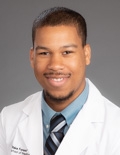
2022 FCLC Alumni Tamriage Martin
MD Candidate, Class of 2023
Atrium Health Wake Forest Baptist
“I absolutely loved the FCLC program. The program brings together a diverse group of medical professionals and provides insight into major problems and change-making in the past and future of medicine. With this knowledge, individuals come together in cohorts to bring about meaningful change through deep reflection of the self and a better understanding and curiosity of others.”
Answer the call to lead – Apply Now!
Top Specialties With Highest Number of Physicians Working in Private Equity Acquired Practices

A study, supported by the National Institute for Health Care Management (NIHCM), which examined 97,094 physicians practicing in six specialties, 4738 of whom worked in private equity–acquired practices found that specialties with the highest number of physicians working in private equity–acquired practices are dermatology, gastroenterology, urology, ophthalmology, obstetrics and gynecology, and orthopedics.
Learn more by clicking here.
Today is National Chocolate Chip Cookie Day!

August 4 is a day to be celebrated! It is National Chocolate Chip Cookie Day!
Chocolate Chip cookies are attributed to Ruth Graves Wakefield who ran out of baker's chocolate for a cookie recipe in 1937. Instead she used semi-sweet chocolate and they were an instant success. As you may have guessed, this all happened at the Toll House Inn!
Wakefield was a chef, dietitian, teacher, and author. She and her husband owned the Toll House Inn near Boston, MA where Wakefield was also famous for her lobster dinners.
The cookies were an experiment on a recipe she discovered in Egypt and she broke up a Nestle chocolate bar into the dough. The recipe took off during World War 2 when soldiers over seas asked their families for Toll House cookies. It also led to a spike in sales of Nestle chocolate bars. Andrew Nestle and Wakefield made a business arrangement. Wakefield gave Nestle the right to use her recipe for one dollar and a lifetime supply of Nestle chocolate.
Talk about a sweet deal!

